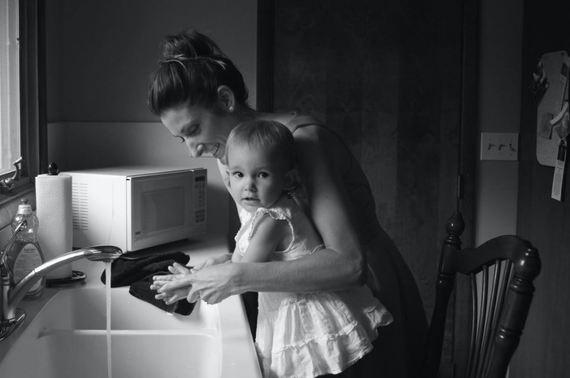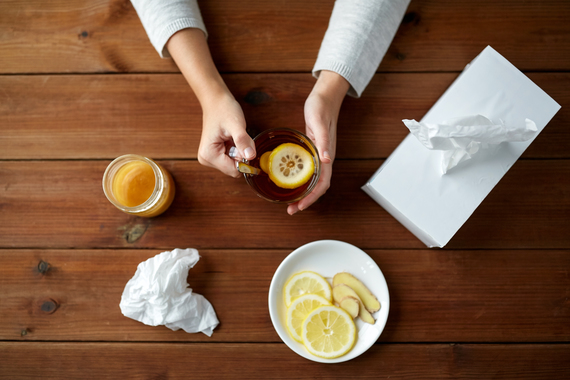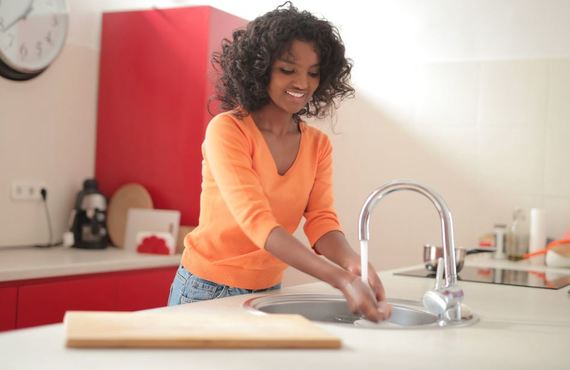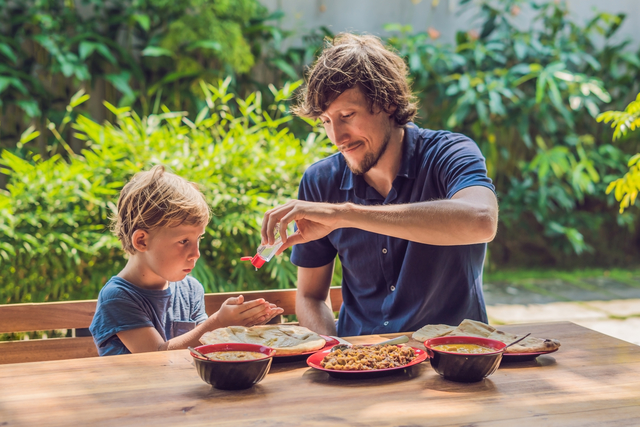There are a lot of lessons that we have learned from our year of living through a pandemic. We learned what we really value and what is truly important to us. We realised the importance of looking forward to the little things. And one of the most important things we realised was how the simple practice of cleaning our hands can give us powerful protection from illnesses.
It is now second nature to seek out the hand sanitiser when we enter a shop. There is a mask in every coat pocket, just in case. We’ve never cleaned our hands as often.
And it’s these kinds of practices that are more important to take into the future with us than anything else, according to Dr Nuala O’Connor GP.
Dr O’Connor is the Irish College of General Practitioners (ICGP) lead on the prevention of Healthcare Associated Infection /Antimicrobial Drug Resistance (HCAI/AMR).
Dr Nuala answered lots of questions we have about how we keep ourselves and our families well when we spoke about the importance of hand hygiene for our long-term health.
This year has changed so many things for some many people – how have you seen it change the public’s approach to health?
Well I hope that we’re not going to forget everything that we’ve learned with COVID-19. ‘World Hand Hygiene Day’, has been around for many, many years now and I have been talking for what seems like forever about keeping your hands clean and away from your face and coughing into your elbow and the importance of handwashing. I think we’ve very much embedded these ideas now through all aspects of life. How to wash our hands properly and the importance of washing our hands is a really important life skill to teach our children.
It’s all stuff our own parents taught us. We don’t and can’t live in a sterile environment- we use mobile phones all the time, we touch surfaces, we touch door handles. It’s so important to wash our hands after the bathroom and before preparing or eating food. We just have to remember that there are bugs everywhere.
There are two main ways you pick up an infection. Firstly, say I coughed directly into your face and I have a virus of some sort – you actually haven’t much of a hope because these viruses get in through the mucus membranes. Our skin is good protection, but bacteria or viruses can still get in through your mouth, nose and eyes. If I cough into your face you’ll inhale it and you’re very likely to get sick.
And secondly, if my hands are touching surfaces all day and then I go to have my lunch and I don’t clean my hands. I might pick up a sandwich – but my hands are covered in bugs. So I give myself the bug that is on my hands. If I touch my face and I haven’t been cleaning my hands, then I’m bringing the bugs up to my face.
This is where I think the alcohol gel is fabulous. I would love alcohol gel to be on everybody’s desk, to be in the centre of the table in restaurants – you can’t be getting up constantly to go to the bathroom and wash your hands but I think having the alcohol gel makes it easy. We can even have it in our handbags, kids have it in their schoolbag – it’s normal to take it out and clean your hands now. I think that would be very good.

And have you seen the effects of all these measures taken this year? Are COVID measures something we should keep practicing even after?
What we’ve really noticed in general practice and what I’m sure parents have noticed, is that kids have had very few infections this year. On average, children get 6-7 viral infections per year. Most of those are in winter.
Head colds, sore throat, the earache, the cough – most of those are viruses and can be passed on in the exact same way as COVID-19 is passed on. So if we can build it into society that we all regularly use the same hygiene measures that we do at the moment, we can actually keep those infections down.
Another thing we did this year was offer a flu vaccine to children. Did you know there hasn’t been a single positive flu in this country this year? Not one. There’s a couple of reasons involved in that;
- We haven’t had much travel into Ireland. Influenza circulates around the globe in the same way COVID-19 circulates around the globe, moving from the Southern hemisphere to the Northern hemisphere – it follows the seasons. Influenza arrives onto our shores because people arrive into Ireland and they bring it with them.
- In every country around the world, more and more people took the flu vaccine because we knew the combination of getting the flu and COVID-19 together would be dangerous one.
- In Ireland we introduced the influenza vaccination for children for the first time. We saw about a third of children taking that up in the first year. We want a lot more people to get it next year and every year because flu tends to circulate among young children. If the flu comes into the house from the child, it spreads it to the adults. If we can vaccinate more children, we can stop the spread of flu.
Do you have tips or tricks for encouraging hygiene amongst our children? I know schools have great campaigns, but as parents, what can we do?
The first thing is to make sure you have alcohol gel in the hallway so everyone can clean their hands when coming into the house. There should be soap available in the bathroom at all times. Fresh towels are also important.
Encourage children to wash their hands after they’ve been to the bathroom. Children learn by example. So if they see mum and dad always washing their hands before they prepare food, after they’ve prepared food and cleaning their hands before they sit down to a meal, that will help.
I think we all got a lot better at observing how often we touch our hands to your face. Teach children to keep their hands away from their face. There are really good resources, one of them called e-bug, which is a free resource for primary schools and secondary schools, and there’s lots of games and toys and tricks about teaching kids about bugs and how they’re part of our world, but how they can be dangerous to us and how to prevent them.
At home, the big ones would be preparing food and before and after meals and the bathroom. Also, when children are out playing in the garden, it’s important to stop them touching their hands to their face. Children should be washing their hands after playing with pets and animals.

But don’t kids need a certain amount of dirt to build up immunity?
Exposure to infection helps to build your natural immunity and it’s inevitable that you’re going to be exposed to infections anyway.
What we want to do it we want to try to minimise the exposure so that over time you will develop immunity to common infections without missing out on school and work. I think we’ve all realised that we can be responsible for spreading these infections on to others. Which can then suddenly mean that nobody can go to work, kids can’t go to crèche, or the crèche or school has suddenly shut down because the bug has made its way inside there.
So, I think we now know that if you are feeling unwell, you should take some time out and that it’s actually the right thing to do. It’s better for somebody to stay at home and stop the spread of infections from going around the crèche or school or workplace. Now that a lot of us have the ability to do part of our work from home if we are coming down with something or have a mild infection we are still capable of doing a certain amount of work from home, but not being in and spreading infection around the workplace.
What about antibiotics? Do they have a role to play?
There are three kinds of microbes or bugs that cause infection. There’s viruses, which cause the majority of infections. There are bacteria and there are fungal infections. The vast majority of infections that children get every year are viruses.
Antibiotics are very specific drugs – they kill bacteria and have no effect whatsoever on viruses. But I think there are some myths out there that some people think they are going to get better faster if they take an antibiotic.
But if you have a viral infection, all that happens when you take an antibiotic is that you leave yourself prone to the side effects of antibiotics and one in five people will get a side effect- maybe nausea, vomiting, diarrhoea, a skin rash or even severe allergic reactions to antibiotics. So antibiotics in themselves can cause problems
Why would you take something that isn’t going to help you get better any faster, has no effect on the infection that you have and can give you side effects?
The other thing is that a lot of the time, the symptoms that you or your child may have is a temperature. And an antibiotic doesn’t bring down a temperature. Paracetamol or ibuprofen does that. An antibiotic is not a painkiller. Again, that is your paracetamol or your ibuprofen. So the antibiotic is very specific to kill a bacterial infection.
Because bacteria are trying to survive, they’ve gotten very good at developing resistance to antibiotics. So the more you use an antibiotic, the more likely it is that bacteria will develop a resistance to it. And that means that that particular antibiotic becomes less useful over time.
Sometime people say, ‘Well I’ve never used antibiotics in my life’ – that doesn’t matter. If you become infected with a multi-drug resistant or superbug – it doesn’t matter that you’ve never used an antibiotic – I’ll have nothing to treat you with.

So it’s the actions of everybody affecting everyone else as well?
Exactly. And a number of the antibiotics that we used to use previously, we can’t use anymore. They’re not effective anymore.
What I’m hoping with COVID-19 is that people really now understand that this was a viral infection, it didn’t need an antibiotic.
I think what people need to understand is that, if you have symptoms of an infection and you go to see your GP and if your GP has assessed you and said, ‘I think this is a viral infection, I think you’re going to get better by yourself,’ we need to learn to accept that as a positive outcome, that’s a good result. Whereas sometimes people are inclined to say, ‘I went to the GP and I got nothing!’
Something that Dr. O’Connor thought was important was that parents be aware of the resources available to them when they or their child is feeling sick. There is lots of information available on the HSE website and on Mychild.ie for parents to take advantage of and may even save them a trip to the doctor’s office. Leaving your GPs without having been prescribed something can feel a little daunting as we wonder what to do next, but there is lots of practical support and information about how to get better.
Get more information
There are lots of tips on hand hygiene on www.hse.ie/handhygiene and you can learn all about bacteria on https://www.e-bug.eu/index.html#IrelandEnglish a teaching/ learning resource for schools and colleges (and parents!). On e-bug you can find out about bugs through quizzes, games and home science experiments. Try them out – you’ll be surprised.






